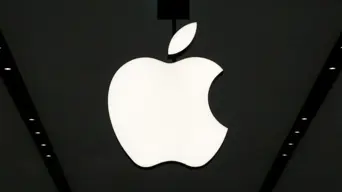Apple rolls out AI features across devices
The release, first previewed by the company in June, marks Apple’s foray into an AI race that has seen the US tech giants rush into ChatGPT-style technology.

FILE: The trademark of Apple Inc. is seen in Shinjuku Ward, Tokyo on 15 June 2022. Picture: AFP
SAN FRANCISCO - Apple on Monday rolled out its first set of artificial intelligence features, dubbed "Apple Intelligence," across its premium iPhone, iPad, and Mac devices, marking the tech giant's major push into generative AI.
The release, first previewed by the company in June, marks Apple’s foray into an AI race that has seen the US tech giants rush into ChatGPT-style technology.
Google, Microsoft, Amazon and Apple are convinced that generative AI's powers are the next chapter of computing and have ramped up spending so as not to be left behind.
"Apple Intelligence is generative AI in a way that only Apple can deliver, and we’re incredibly excited about its ability to enrich our users’ lives,” said Apple CEO Tim Cook in a blog post.
Apple’s new features include enhanced writing tools, improved photo searching capabilities, and a more conversational Siri virtual assistant.
The company also plans to integrate ChatGPT's capabilities into its services by December.
Additional features planned for December include the ability to generate custom emoji and create images from text descriptions.
The powers of Apple Intelligence are for now only available in US English.
Chinese, French, German, Italian, Spanish, Korean and other languages will be released in the coming year.
The features are largely being limited to the latest iPhones and iPads as well iMacs.
Key features also include system-wide writing tools that can rewrite and proof-read text and the ability to remove unwanted objects from images.
Overall, the features are similar to tools recently released by Meta, Microsoft and Google.
Amid concerns about the safety of AI models, the company emphasized that its versions prioritize user privacy by keeping processing on-device or by using a new "Private Cloud Compute" system.
This, the company says, will keep personal data within the Apple eco-system, which privileges data privacy.